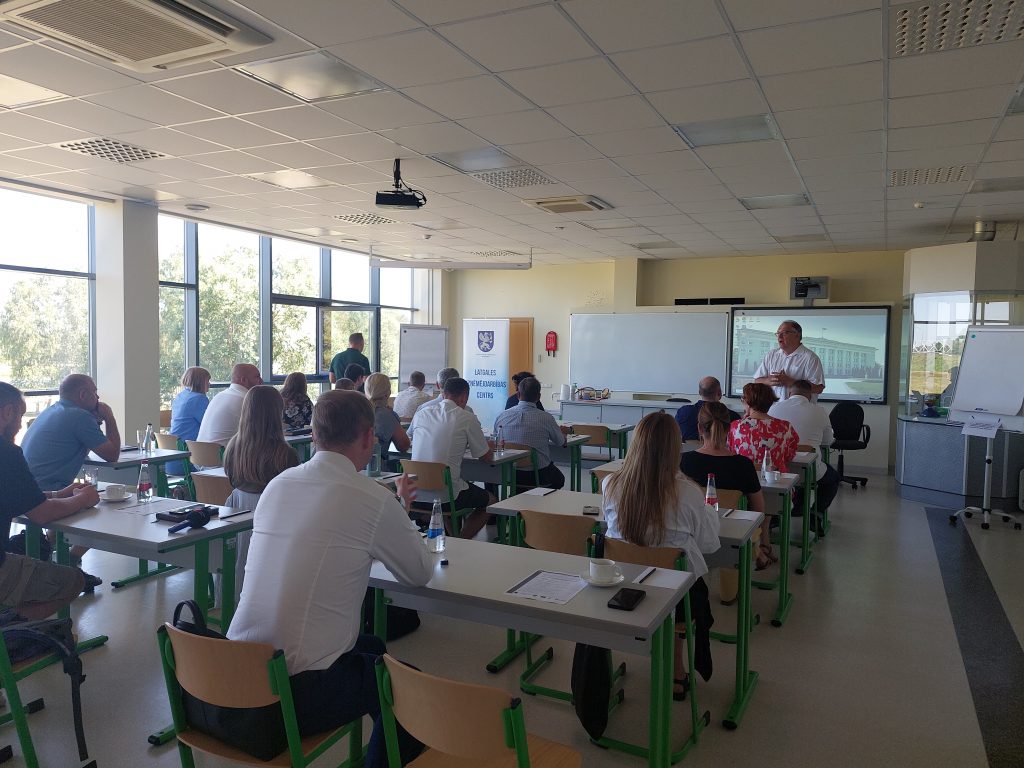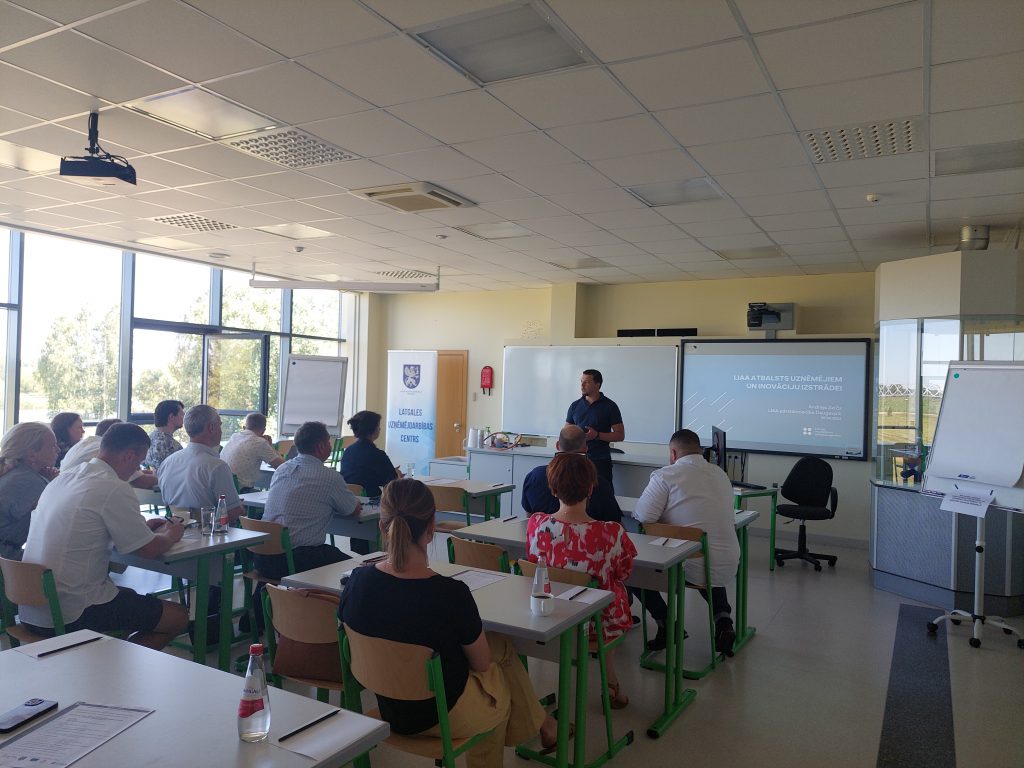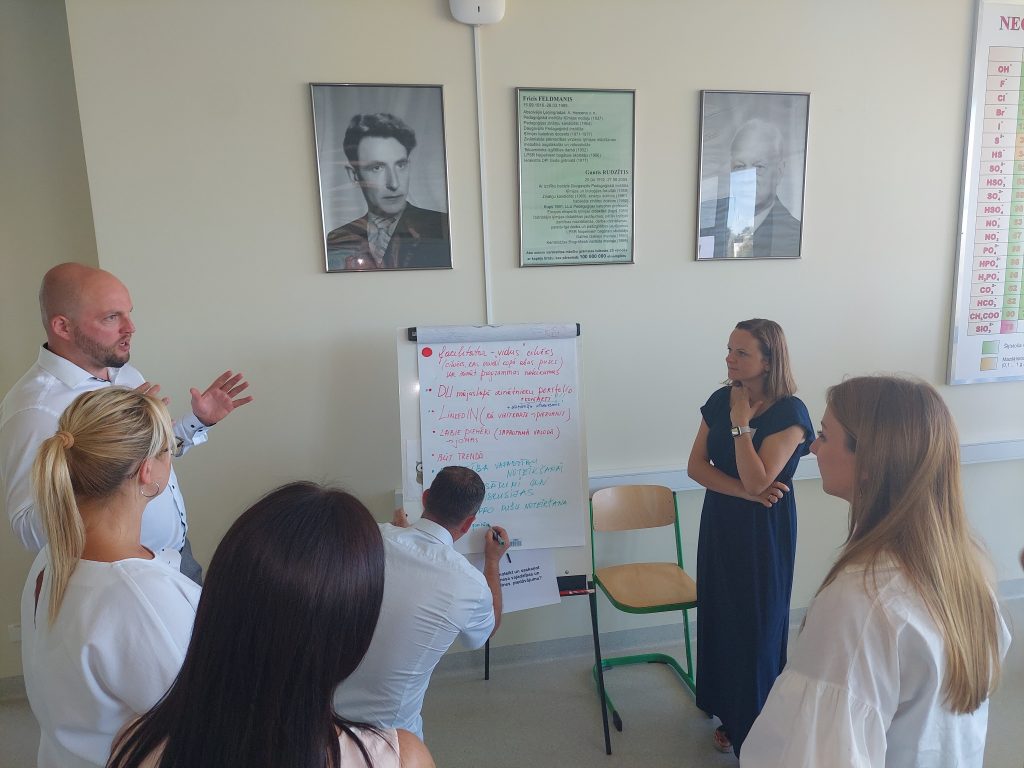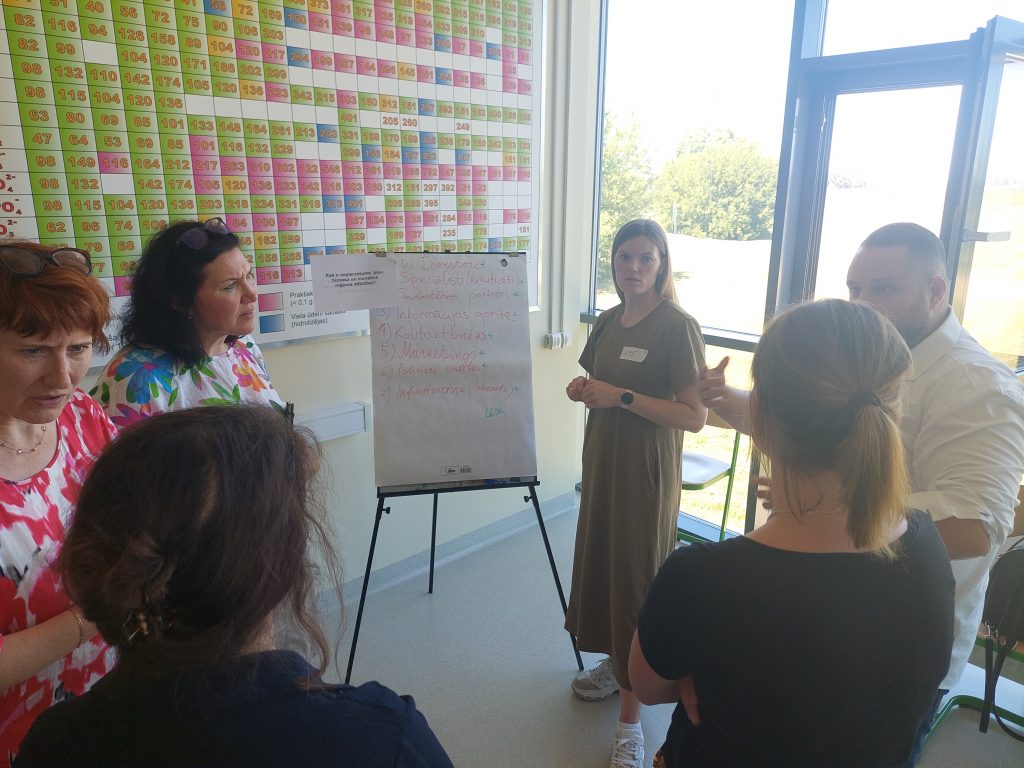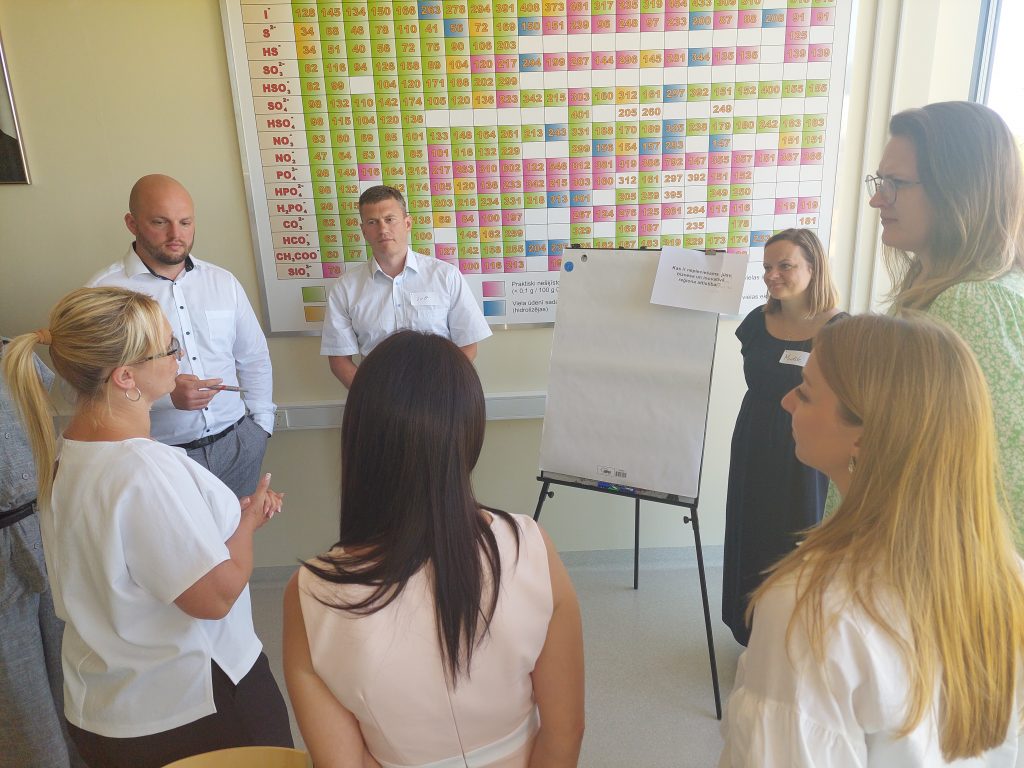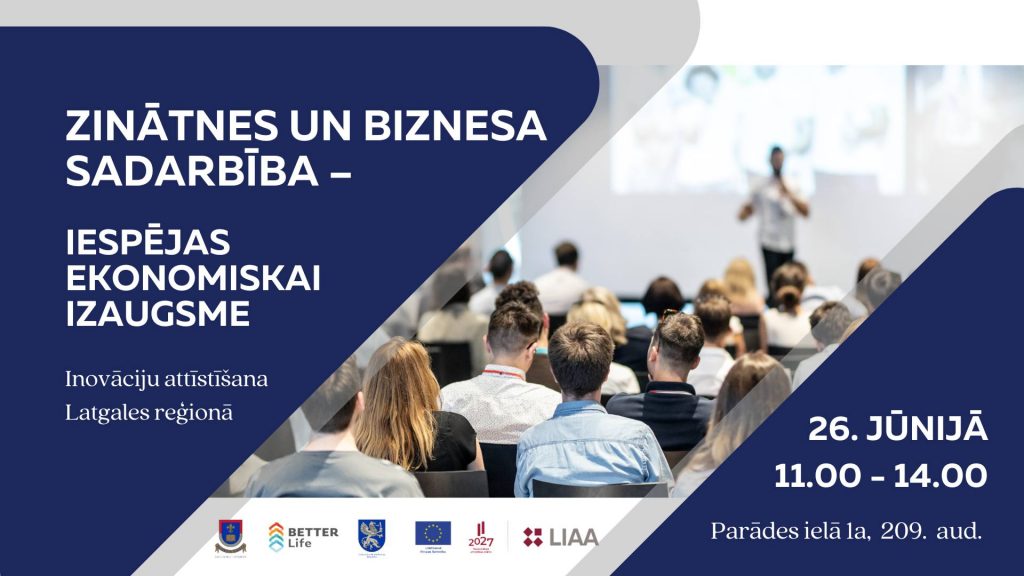
Within the framework of Better Life project “Bringing Excellence to Transformative Socially Engaged Research in Life Sciences through Integrated Digital Centers”, WP4 Capacity Building and Community of Practice, The Think Tank discussion, organized by the Daugavpils University Research and Business Center “REBUS” in collaboration with the Latvian Investment and Development Agency (LIAA) Daugavpils office and the Latgale Planning Region Business Center (LPR LUC), was held on June 26, 2024.
This event aimed to explore and enhance the synergistic potential between scientific research and business innovation, thereby contributing to regional economic growth. The event took place at Daugavpils University, emphasizing the strategic importance of academia-industry collaboration.
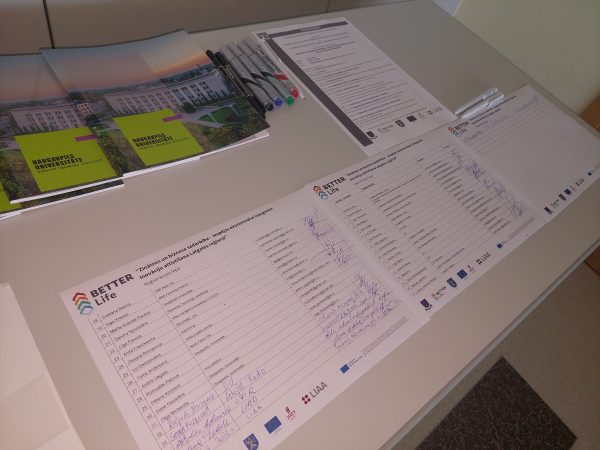
The session was attended by a diverse group of stakeholders, representing practically all main elements of quadruple helix stakeholder groups – academia and training administrators, officers/managers, also PR specialists, national governmnetal agencies at regional level (nature and environment protection), municipal environmental sector, NGO and bussiness-research development centre.
The following stakeholders participated in the Think Tank discussion: Latgales Planning Region, Daugavpils Municipal Administration, Daugavpils Municipality, Augšdaugava Municipality Central Administration, Krāslava District Partnership Association, Baltic Development Fund, Daugavpils University, VITCAKE, Latvian Textile Industry Association, SIA Himalayan International, Latvian Chamber of Commerce and Industry, Latvian IT Cluster, SMD Baltic SIA, BDR Partnership Neighbors, Rezekne Technology Academy, Environmental Solutions Company ECOSOUL, PROTAMS SIA, GaloGroup, Environmental Project Studio, Nexis Fibers SIA, InnovoMotion, Latvian Radio, Latvian Investment and Development Agency (LIAA), Latgale Special Economic Zone LPR, SIA Neon Underground, Institute of Life science and technologies.
The discussion commenced with opening remarks from Arvīds Barševskis, Rector of Daugavpils University; Andrejs Zelčs from LIAA Daugavpils; and Andris Kucins of LPR LUC. Their speeches highlighted the significance of integrating academic research with business strategies to foster an environment conducive to innovation and economic development.
Andrejs Zelčs from LIAA Daugavpils presented on the support available to entrepreneurs and the development of innovations. He detailed various initiatives and resources provided by LIAA to facilitate the translation of scientific research into marketable innovations. This was followed by a presentation on best practices, showcasing successful examples of companies that have effectively collaborated with researchers to drive innovation. These presentations underscored the practical benefits of such collaborations and provided a blueprint for other businesses to follow.
Inese Gavarāne, acting director of the REBUS Center, along with researcher pitches, discussed the collaboration opportunities available through the Daugavpils University portfolio. The REBUS Center’s role in fostering a smart society and innovative region was emphasized, illustrating the center’s commitment to bridging the gap between academic research and practical business applications.
A significant portion of the event was dedicated to interactive discussions in a World Café format. Participants were divided into groups to address key questions, and the results were summarized as follows:
Aligning Business Needs with Scientific Offerings:
Requirements for Business and Regional Innovation Development:
Improving the University Research and Development Ecosystem:
Promoting Innovation in the Business Environment:
Artūrs Škute, Head of the Ecology Department addressed the role of public participation in the research process, highlighted the needs and challenges associated with involving the public in scientific research, emphasizing the importance of community engagement in fostering a culture of innovation and ensuring that research addresses societal needs.
The event concluded with open discussions with researchers and tours of the university’s laboratories. This provided practical insight into the ongoing research and development activities at Daugavpils University, demonstrating the institution’s capabilities and readiness to collaborate with business entities.
The Think Tank discussion underscored the critical importance of fostering a robust dialogue between academia and industry. By highlighting best practices, support mechanisms, and collaboration opportunities, the event successfully laid the groundwork for enhanced cooperation aimed at driving regional economic growth through innovation. The active participation and diverse perspectives shared during the discussions, particularly the insights from the World Café sessions, are expected to contribute significantly to ongoing efforts to integrate scientific research with business innovation in the region.
